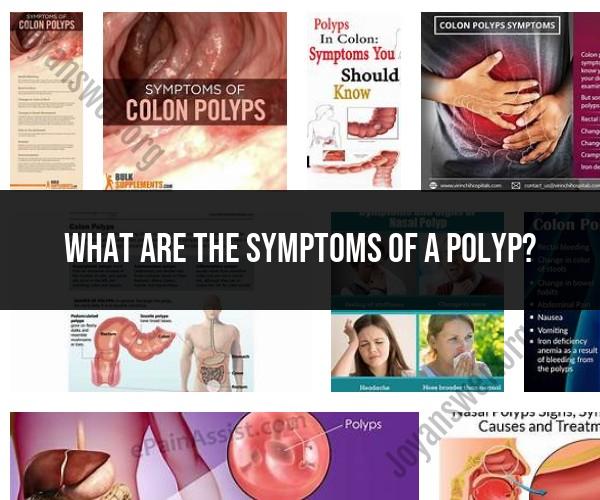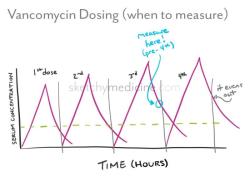What are the symptoms of a polyp?
Polyps are abnormal growths that can occur in various parts of the body, including the colon, nasal passages, uterus, and other areas. The symptoms of polyps can vary depending on their size, location, and whether they are causing any irritation or obstruction. Here are some common symptoms associated with different types of polyps:
Colorectal Polyps:
- Colorectal polyps often do not cause symptoms themselves. They are typically discovered during routine colonoscopies.
- Some larger or cancerous polyps in the colon may cause symptoms like rectal bleeding, blood in the stool, changes in bowel habits (e.g., diarrhea or constipation), abdominal pain, or a feeling of incomplete bowel movements.
Nasal Polyps:
- Nasal polyps can lead to symptoms such as persistent nasal congestion, a runny nose, postnasal drip, reduced sense of smell, facial pain or pressure, and frequent sinus infections.
Uterine Polyps:
- Uterine polyps can cause symptoms like irregular menstrual bleeding (heavy or frequent periods), spotting between periods, pelvic pain, and infertility.
Cervical Polyps:
- Cervical polyps may lead to symptoms such as vaginal bleeding between periods, after sexual intercourse, or after menopause. They can also cause increased vaginal discharge.
Gastrointestinal Polyps (Stomach or Small Intestine):
- Gastrointestinal polyps can cause symptoms like abdominal pain, nausea, vomiting, and gastrointestinal bleeding, which may result in dark, tarry stools or blood in the vomit.
Bladder Polyps:
- Bladder polyps can lead to symptoms such as blood in the urine (hematuria), frequent urination, urgency, and painful urination.
It's important to note that not all polyps cause noticeable symptoms. Some are benign and do not require treatment unless they become problematic or cancerous. However, if you experience any persistent or unusual symptoms that could be related to polyps, especially rectal bleeding or blood in the urine, it's essential to consult a healthcare professional for proper evaluation and diagnosis. Regular screenings and check-ups, such as colonoscopies and gynecological exams, can help detect and manage polyps before they lead to more serious health issues.











